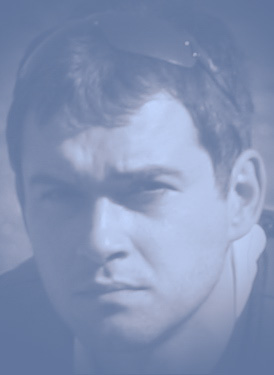Wilhelm Maximilian Wundt (GER) * 16.08.1832
† 31.08.1920 (88 years old)
ilhelm Maximilian Wundt (16 August 1832 – 31 August 1920) was a German physician, physiologist, philosopher, and professor, known today as one of the founding figures of modern psychology. Wundt, who notedpsychology as a science apart from biology and philosophy, was the first person to ever call himself a Psychologist. He is widely regarded as the "father of experimental psychology". In 1879, Wundt founded the first formal laboratory for psychological research at the University of Leipzig. This marked psychology as an independent field of study.
By creating this laboratory he was able to explore the nature of religious beliefs, identify mental disorders and abnormal behavior, and find damaged parts of the brain. In doing so, he was able to establish psychology as a separate science from other topics. He also formed the first journal for psychological research in the year 1881.
Selected publications:
Die Lehre von der Muskelbewegung (The Patterns of Muscular Movement), (Vieweg, Braunschweig 1858).
Die Geschwindigkeit des Gedankens (The Velocity of Thought) (Die Gartenlaube 1862, Vol 17, p. 263)
Beiträge zur Theorie der Sinneswahrnehmung (Contributions on the Theory of Sensory Perception), (Winter, Leipzig 1862).
Vorlesungen über die Menschen -und Tierseele (Lectures about Human and Animal Psychology), (Voss, Leipzig 1863/1864).
Lehrbuch der Physiologie des Menschen (Text-book of Human Physiology), (Enke, Erlangen 1865).
Die physikalischen Axiome und ihre Beziehung zum Causalprincip (Physical Axioms and their Bearing upon Causality Principles) (Enke, Erlangen 1866).
Handbuch der medicinischen Physik (Handbook of Medical Physics), (Enke, Erlangen 1867)
Grundzüge der physiologischen Psychologie (Principles of Physiological Psychology), (Engelmann, Leipzig 1874) (has been revised and republished several times[22])
Untersuchungen zur Mechanik der Nerven und Nervenzentren (Researches upon the Mechanisms of Nerves and Nerve-Centres), 1876
Logik. Eine Untersuchen der Principien der Erkenntniss und der Methoden Wissenschaftlicher Forschung (Logic. An investigation into the principles of knowledge and the methods of scientific research), (Enke, Stuttgart 1880 & 1883), 3 Volumes and vol. 4
Essays, (Engelmann, Leipzig 1885).
Ethik (Ethics), (Enke, Stuttgart 1886)
System der Philosophie (System of Philosophy), (Engelmann, Leipzig 1889).
Grundriss der Psychologie (Outline of Psychology), (Engelmann, Leipzig 1896).
Völkerpsychologie (Social Psychology), 10 Volumes, (Engelmann, Leipzig 1900 to 1920)
1, 2. Die Sprache (Language), Pt 1, 2. (1900)
3. Die Kunst (Art). (1908)
4, 5, 6. Mythos und Religion (Myth and Religion), Pt 1, 2, 3. (?1910, 1914, ?)
7, 8. Die Gesellschaft (Society), Pt 1, 2. (1917)
9. Das Recht (Right). (1918)
10. Kultur in der Geschichte (Culture in History). (1920)
Kleine Schriften (Shorter Writings), 3 Volumes, (Engelmann, Leipzig 1910).
Einleitung in die Psychologie (Introduction to Psychology), (Engelmann, Leipzig 1911).
Probleme der Völkerpsychologie (Problems of Social Psychology), (Wiegandt, Leipzig 1911).
Elemente der Völkerpsychologie (The Elements of Social Psychology), (Kröner, Leipzig 1912).
Reden und Aufsätze (Addresses and Extracts), (Kröner, Leipzig 1913).
Sinnliche und übersinnliche Welt (The Sensory and Supersensory World), (Kröner, Leipzig 1914).
Über den wahrhaften Krieg (About the Real War), (Kröner, Leipzig 1914).
Die Nationen und ihre Philosophie (Nations and Their Philosophies), (Kröner, Leipzig 1915).
Erlebtes und Erkanntes (Experience and Realization), (Kröner, Stuttgart 1920).
Philosophische Studien (the first journal of psychology), 1871
Source: http://en.wikipedia.org/wiki/Wilhelm_Wundt

|

